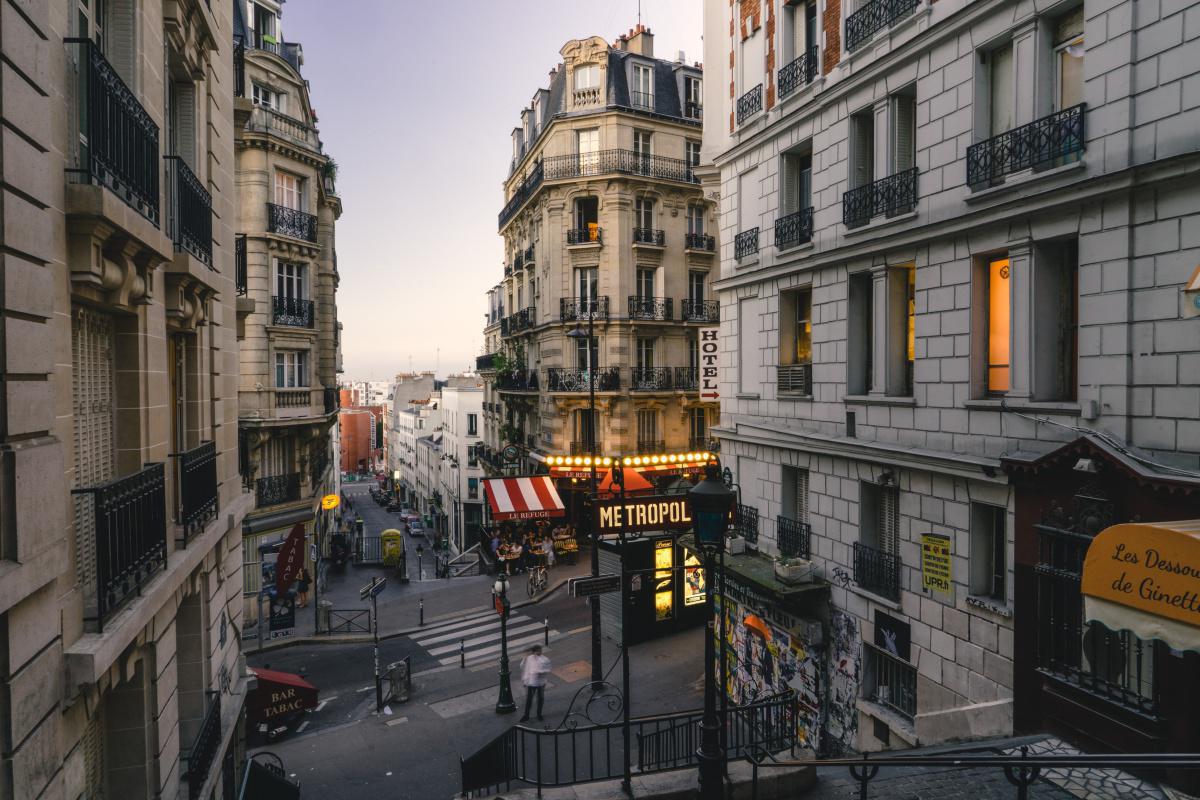A man wearing a phony explosives vest and using a butcher blade was shot to death by police outside a Paris police headquarters Thursday, shocking an effectively on edge French capital with another portion of dread as the country dismally denoted a time of fear that began with the newsroom slaughter at the Charlie Hebdo ironical magazine.
The attacker — who yelled "Allahu akbar!" or "God is incredible!"— as he waved the blade at officials, was conveying an archive with an image of the Islamic State gathering and "an unequivocal case of obligation in Arabic," the investigator's office said.
The radical gathering guaranteed duty regarding the Jan. 7, 2015, assault at Charlie Hebdo and on a genuine market three days after the fact that killed 17 individuals. The Islamic State bunch additionally asserted the Nov. 13 assaults on Paris bistros, eateries, a games arena and a music corridor that slaughtered 130 individuals.
Thursday's endeavored assault without further ado before early afternoon in Paris' multi-ethnic Goutte d'Or neighborhood came right around one year to the moment after two Islamic fanatics burst into the workplaces of Charlie Hebdo, killing 11 individuals. Just minutes sooner, President Francois Hollande had offered feelings of appreciation to fallen security powers — three of whom were killed a year ago in fear based oppressor brutality — saluting their valor in ensuring "along these lines of life, the one that psychological oppressors need to assault."
The fallen were murdered "with the goal that we can live free," Hollande stated, depicting the November assaults as "demonstrations of war."
In any case, there was no relief for France.
Scores of police plunged Thursday on the northern neighborhood that was the site of the endeavored assault, closing it off to walkers and requesting shops to close. Metro stations in the region, which isn't a long way from the Montmartre region that is home to the Sacre Coeur Cathedral, were shut and transports ended, leaving scores of inhabitants, including some older, to walk significant distances just to discover they couldn't get into their homes.
"It resembles the Charlie Hebdo undertaking isn't finished," said Nora Borrias, a 27-year-old sitting tight for her blockaded road to revive. She said she no longer feels a feeling of security.
Video shot from a window over the station and gave to The Associated Press demonstrated the speculate's body lying on the ground in a pool of blood as a sniffer hound was brought in to check the body, alongside a bomb-recognizing robot. More video disclosed later on iTele TV demonstrated a police explosives pro cutting open the dead man's coat to check for live explosives.
Alexis Mukenge, who saw the shooting, revealed to iTele that police yelled, "Stop! Move back!" before terminating twice at the man, who quickly tumbled to the ground.
Specialists didn't openly recognize the suspect. In any case, a French security official said police were "taking a shot at the speculation" that the attacker is a 20-year-old Moroccan who was associated with a minor 2013 burglary in the southern Var district.
The official, who talked on state of namelessness since he was not approved to examine the case, said that while the fingerprints of the dead aggressor coordinated those of the burglary suspect, who distinguished himself at the time as Ali Sallah of Casablanca, the attacker in Thursday's assault seemed more established than 20.
He said Sallah, who had been in France illicitly, was requested to leave the nation after the 2013 occurrence. Agents were attempting to decide whether and when the man had come back to Paris.
Prior, the Paris examiner's enemy of psychological oppression unit said it had opened an examination concerning Thursday's endeavored assault. Other than the IS symbol and guarantee of duty in Arabic, a cellphone was likewise found on the presume's body, the investigator's office said in an announcement. It didn't expand on the case of duty.
France pronounced a highly sensitive situation after the November assaults, and a large number of security powers have spread out around the nation, focusing particularly on spots of love and other delicate destinations.
Hollande is attempting to push through a disputable new measure that calls for anybody with double nationality sentenced for fear based oppression to lose French citizenship.
Talking prior Thursday, Hollande said that what he called a "fear monger risk" would keep on burdening France. He called for better observation of "radicalized" residents who have joined the Islamic State gathering or other battling bunches in Syria and Iraq when they come back to France.
"We should have the option to compel these individuals — and just these individuals—to satisfy certain commitments and if important to put them under house capture … in light of the fact that they are risky," he said.
France has looked down dread from various quarters throughout the decades, however its first head-on experience with the Islamic State bunch a year prior was a defining moment for a frightful Europe. The assaults on the ironical Charlie Hebdo magazine, which taunts Islam and all sorted out religion and utilizations crude language in its kid's shows and articles, had reverberation all through Europe and the world. Pioneers ran to Paris in a solidarity walk and "Je Suis Charlie" — I am Charlie — turned into a worldwide motto of rebellion and solidarity with France.
A year — and various assaults — later the paper, similar to the French, lives with another reality.
"Security is another cost for the paper spending plan," Laurent Sourisseau, the editorial manager in-head of Charlie Hebdo and visual artist most popular as Riss, told France Inter radio. He said the paper needed to contribute about 2 million euros to make sure about its workplaces.
Borrias, the Parisian who lives close to the police headquarters that went under assault, says she no longer has a sense of security.
"On the off chance that we were protected, things like this wouldn't occur," she said.

